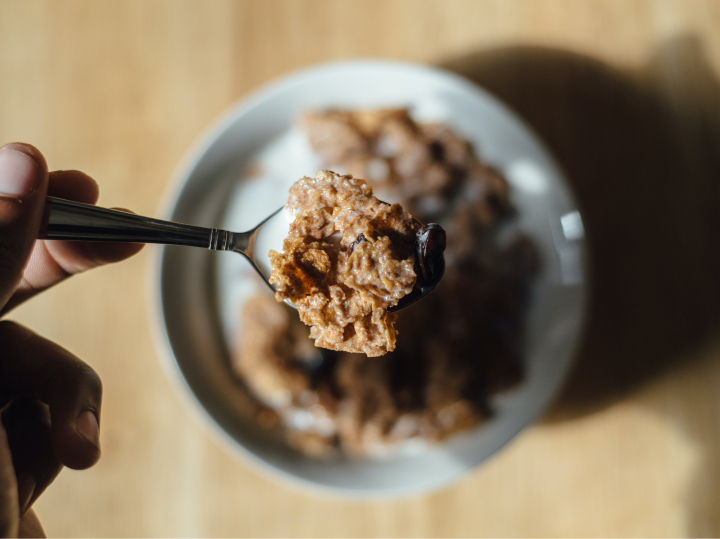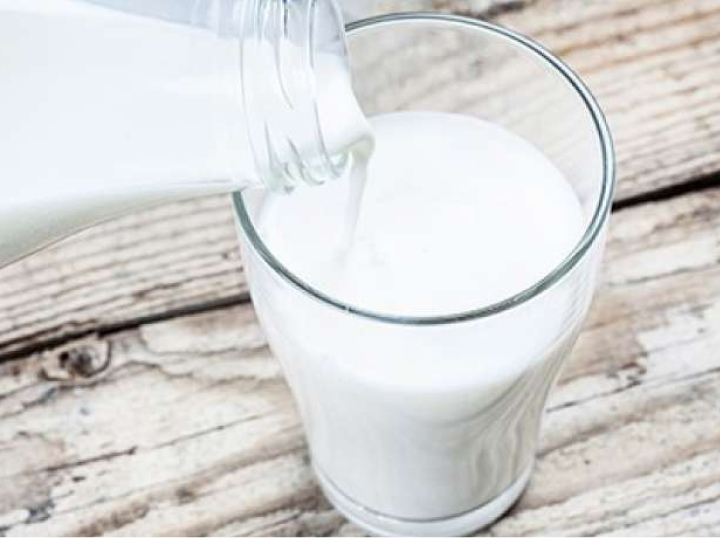Types of Milk Explained
In this guide we’ll break down which is the best kind of milk for your diet from skim milk to lactose-free milk, this guide explains which is the best kind of milk for your diet.
Find the Best Type Of Milk For You
Check your shopping list—how many gallons of milk do you plan to purchase for you and your kids this week? What types of milk do you buy? What milk is healthy for you? If you’re like most Americans, you have milk in your refrigerator, but what type of milk are you drinking?
When you shop in the dairy case, the primary types of milk available are whole milk (3.25% milk fat), reduced-fat milk (2%), low-fat milk (1%) and fat-free milk, also known as skim milk. Each one packs 13 essential nutrients, including 8 grams of high-quality protein. Types of milk vary by percentage of milkfat, or the amount of fat that is in the milk by weight. These percentages are noted on the package and by the different cap colors to show the milkfat at a glance.
While the amount of milk fat does affect the number of calories and fat in each serving, all milk—from fat free to low-fat to organic and lactose free milk—remains a naturally nutrient-rich, simple and wholesome food. Understanding your choices and their differences can help you determine the best type of milk for each member of your family.
WHOLE MILK
Many Americans opt for whole milk—which is actually 3.25% milkfat by weight—not as much as many people think. There are 150 calories in an 8-ounce glass of whole milk, with 8 grams of fat (12 percent of daily value).
And if you are concerned about consuming fat, there is good news about the health benefits of whole milk. There’s a growing body of evidence that suggests not all saturated fats are the same. While more research is needed on the potential benefits of dairy fats, experts agree milk plays an important role in a healthy diet in the overall context of the total diet, nutrients and calories.
There also are other options for those who have different health needs or taste preferences, including reduced fat (2% milk), low-fat (1% milk) and fat-free (or skim) milk. Here are the facts about the other types of milk in the dairy case.
2% MILK (REDUCED FAT)
Reduced-fat milk is labeled as 2 percent milk, which means the milkfat is 2 percent of the total weight of the milk—not that an 8-ounce glass of milk contains 2 percent fat. Here’s a nutrition fact to consider: An 8-ounce glass of 2 percent milk contains 5 grams of fat and has the same 13 essential nutrients as every other type of milk.
LOW-FAT MILK
The difference between low-fat milk and whole milk is the amount of fat in each serving. This also is reflected in the calories for each as well. An 8-ounce serving of low-fat milk contains 2.5 grams of fat and 100 calories, compared to whole milk, which has 8 grams of fat and 150 calories in the same amount.
FAT-FREE MILK (SKIM MILK)
If you are looking for the same nutrients as whole milk, but want to cut calories and fat, fat free (also known as skim) milk is a good choice. In fact, because it has less fat, there are just 80 calories in fat-free milk in each 8-ounce glass. There is a misperception that skim milk contains water to reduce the fat content—but that is not the case. The 13 essential nutrients, including 8 grams of high-quality protein, remain intact.
ORGANIC MILK
Strict farming practices, defined by the United States Department of Agriculture, set the standards for organic dairy farms to produce organic milk. From what cows eat to how farmers care for their cows governs the production of organic milk.
All cows, whether they live on an organic or conventional dairy farm, receive the best care by dairy farmers. Animal care is one of the most important aspects of dairy farmers’ jobs, because it leads to high-quality, wholesome milk.
All varieties of milk — traditional or organic, chocolate or white – are safe and wholesome. Strict standards and government regulations established over the past century in the United States ensure that all milk you buy at the store is safe for you and your family to drink.
LACTOSE-FREE MILK
Lactose-free milk is real cow’s milk—just like the other types of milk—but with one difference. The natural sugar in milk, called lactose, has been broken down. This makes it great option for people who are lactose intolerant. It still contains the same essential nutrients, including calcium, protein and vitamin D, as the other types of milk.
Flavored MILK
Chocolate milk, or other flavored milk, is also a tasty protein food for kids and part of an active lifestyle. Flavored milk counts as a serving of dairy and provides the same 13 essential nutrients in each serving.
RAW MILK
Raw milk — milk straight from the cow—is not pasteurized. It’s not widely available for purchase due to federal laws prohibiting its distribution across state lines, as well as to safety concerns outlined by government agencies including the USDA, the Federal Drug Administration and the Centers for Disease Control.
We hope this guide helped you find the best type of milk for you and your family. Drink up!




